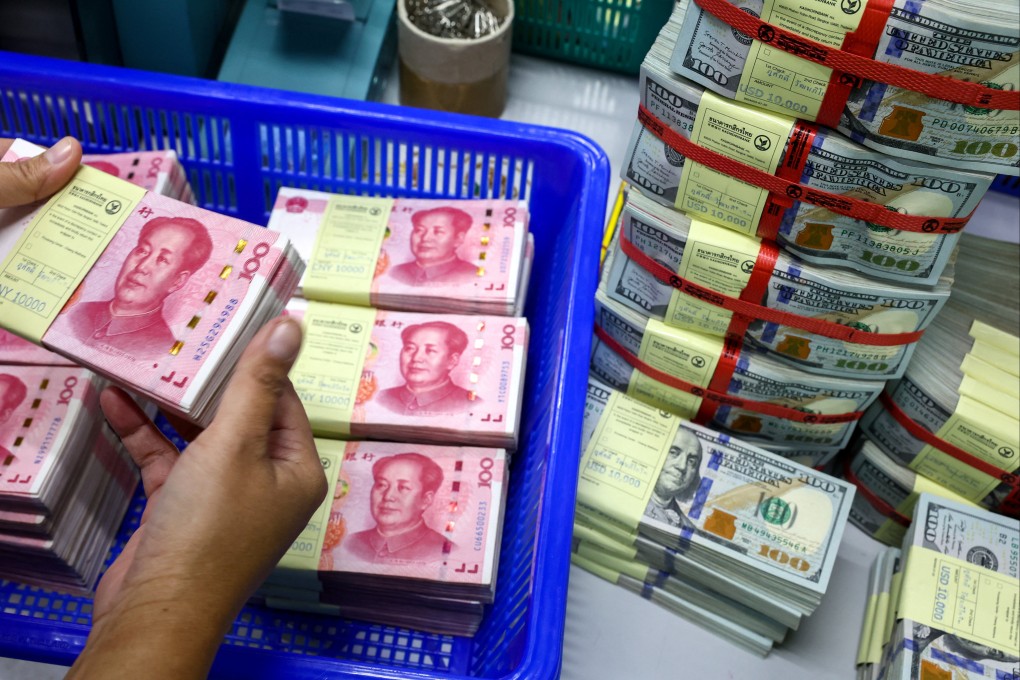Will China weaponise the yuan? Global finance body throws cold water on the idea as it rankles markets
- Intentionally weakening the yuan would be a boon for cheaper Chinese exports, but on the whole, a devalued yuan could make China’s problems much worse
- Institute of International Finance warns of capital-flight risks if the yuan continues to depreciate, and says this simply ‘isn’t an option as a cyclical stimulus tool’

Beijing could – if it really wanted to – drastically devalue China’s yuan to prop up the nation’s exports. Or at least that’s what the market fears.
But the global association of the financial industry says China’s leadership is unlikely to utilise such a seismic option, even as the world’s second-largest economy has been labouring to reverse a persistent downturn.
China’s yuan has depreciated steadily since February, driven by the faltering post-pandemic economy and widening yield gap with other economies such as the US, as well as dampening capital flows and trade.
And the need to counter such pressures and stay competitive has helped fuel concerns that China could “weaponise” the yuan’s exchange rate, as a weakened yuan would make Chinese exports cheaper, boosting international sales.
But the Institute of International Finance (IIF) says that such a move by Beijing would be counterproductive, as it would intensify capital flight.
In a report on Thursday, the IIF pointed to China’s previous yuan devaluations, in 2015 and 2016, saying that rather than boost growth, the moves prompted an exodus of cash and assets, and that this served to tighten financial conditions and add to the growing headwinds.
